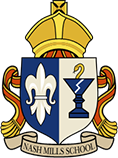Autumn
Year 1's Autumn Term Curriculum
Our main topic this term will focus on
Science: Plants
In this topic the children will be taught to identify and name a variety of common wild and garden plants, including deciduous and evergreen trees. They will also be able to identify and describe the basic structure of a variety of common flowering plants, including trees. This will link with the ongoing topic of seasons in science which will be able to observe changes across the four seasons and observe and describe weather associated with the seasons and how day length varies. This term most of the science will be taught through Forest School.
Helping at Home
With each subject, there may be things that you can do at home to support your child's learning. Please see the ideas below, which are optional extras. We would love to see what you have been up to!
In maths, you could access different games and activities to support fluency; the faster your child can remember key ideas, the easier it will be to access much of the work we do in class. Click here for some suggestions! Don't forget to use Numbots regularly too.
In computing, we shall spend some time learning about being safe online. Please see this website for ideas on things you could talk to your child about at home. We will also learn how to use a laptop and hone our mouse skills through the use of a 'paint' program.
In English, a really important part to help your child at home is to read.
We ask that you read every day with your child and record it in their reading records. Reading is the base for all learning across the school so make this a priority for your family.
Always go over the phonics sounds before reading as this will help your child to remember them before they go to read the story.
Talk! Talk about your day, talk about what you are doing, describe things with your children. Get your children to think of different ways to say a word. For example - big- huge, giant, large, enormous etc.
Let your child read instructions when cooking, or let them make the shopping the shopping list.
Finally, don't forget to read to your child. Children learn best by example, reading to them will show them that you value reading.
